Travel may be resurging post-pandemic. Still, customer service pain points like call wait times now average over 15 minutes across airlines (J.D. Power, 2022).
Chatbots present self-service solutions to handle high-frequency travel queries 24/7 while personalizing experiences. In fact, 61% of travelers now prefer chatbots for flight-related customer support over traditional channels (IBM, 2021).
Powered by AI, travel chatbots leverage robust natural language processing (NLP) to address broad yet nuanced requests around reservations, flight status, rebooking, cancellations, upgrades, and more. Advanced speech recognition even enables voice-based assistants. Behind the scenes, chatbots integrate with backend systems like CRM databases for unified experiences.
According to Juniper Research, over $1.1 billion in transactional value will be attributable to chatbots in the travel sector by 2024, highlighting efficiency and commerce potential (Juniper, 2022).
As language models progress, you can expect savvy integration of travel chatbots across websites, apps, and messaging platforms for comprehensive self-service CX journeys ahead.
So, let's begin with understanding everything about travel chatbots.
What are AI-powered Travel Chatbots?
AI chatbots are computer programs that use AI algorithms to automate user conversations. In the case of travel chatbots, they are specifically designed to assist travelers in organizing their trips and providing relevant recommendations.
These chatbots use machine learning and natural language processing to understand and respond to user queries.
The benefits of AI chatbots in travel planning are immense. They are available 24/7, provide instant support, and can handle multiple queries simultaneously.
Users can easily check flight schedules, hotel bookings, or create itineraries by merely chatting with these AI chatbots.
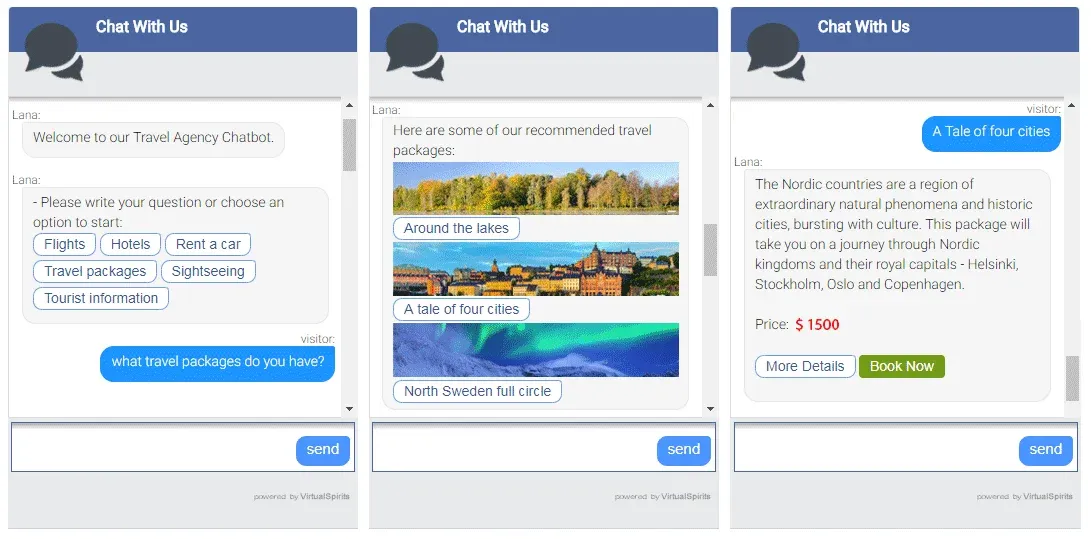
Examples of AI-powered Travel Assistants
There are various AI chatbots available in the market that cater to different travel needs. Let's take a look at some of the popular ones:
BotPenguin
BotPenguin is an AI-powered travel assistant that goes beyond just basic travel planning. It uses natural language processing and machine learning to provide personalized recommendations based on your preferences.
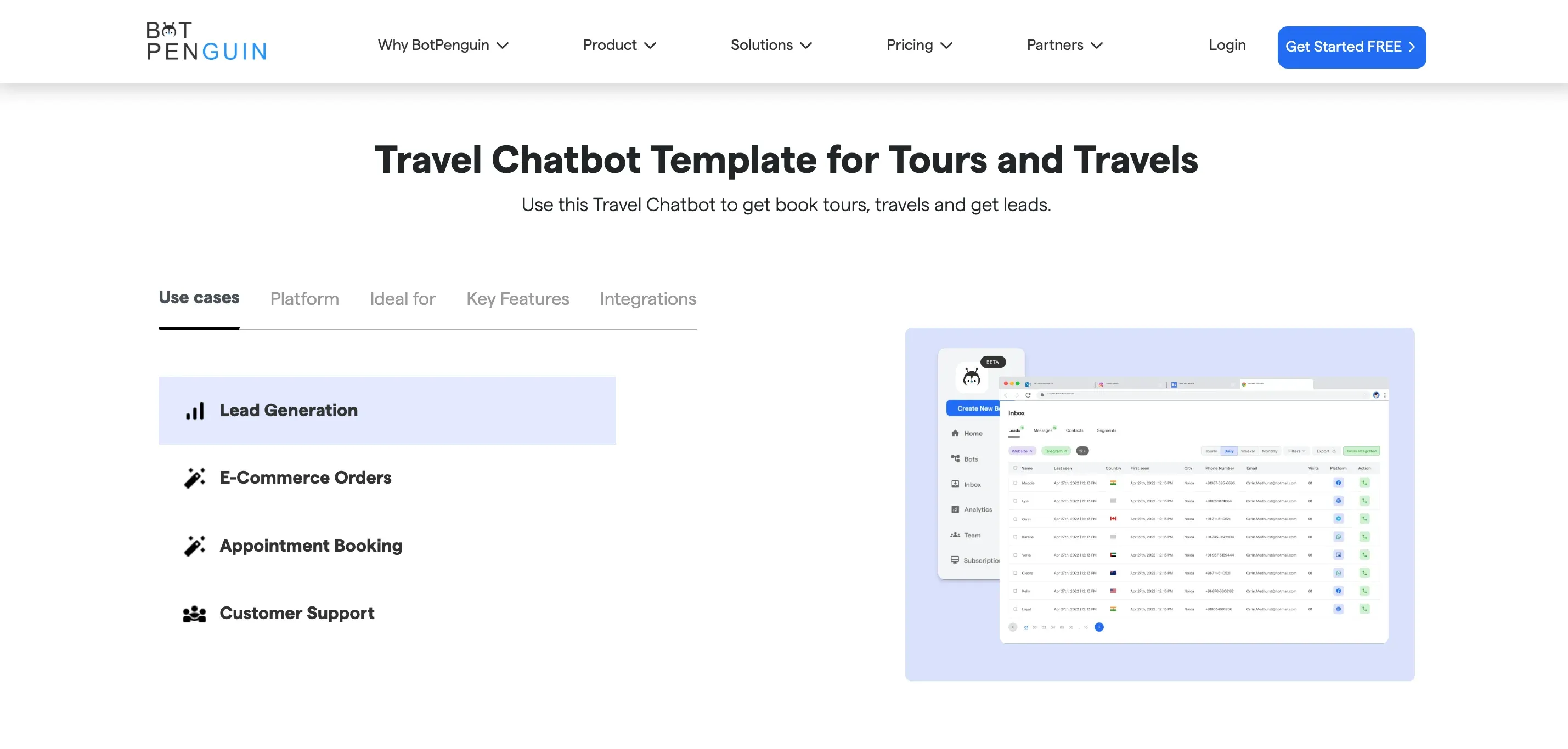
Whether you need help finding the best flight deals, booking accommodations, or discovering local attractions, BotPenguin has got you covered.
Its conversational interface makes it easy to interact with, and it can even assist with travel-related queries during your trip.
Here are the different use-cases where BotPenguin Proves out to be best
- Marketing Automation
- WhatsApp Automation
- Customer Support
- Lead Generation
- Facebook Automation
- Appointment Booking
Hopper
Hopper is a popular app that uses AI algorithms to track flight prices and predict future price changes. It analyzes vast amounts of historical flight data to forecast when prices are expected to rise or fall.
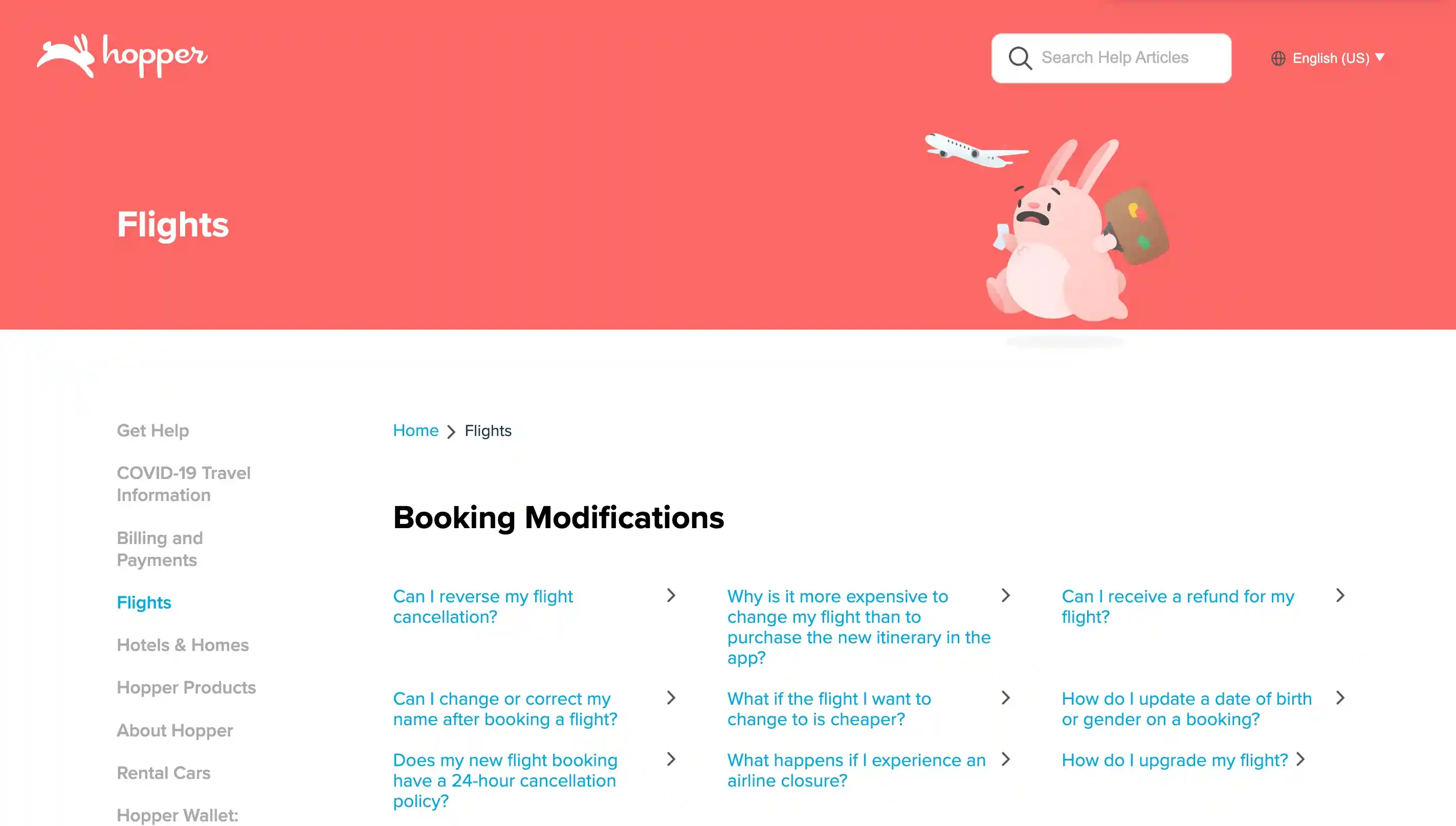
By offering insights on the best time to book your flights, Hopper helps you save money and avoid overpaying. It also sends you price drop notifications, allowing you to book the cheapest flights available.
Pana
Pana is a virtual travel assistant and concierge service designed to make your travel experience seamless. Using AI technology, it can handle various aspects of your trip, such as managing your bookings, organizing your travel itineraries, and providing personalized recommendations for dining, activities, and sightseeing.
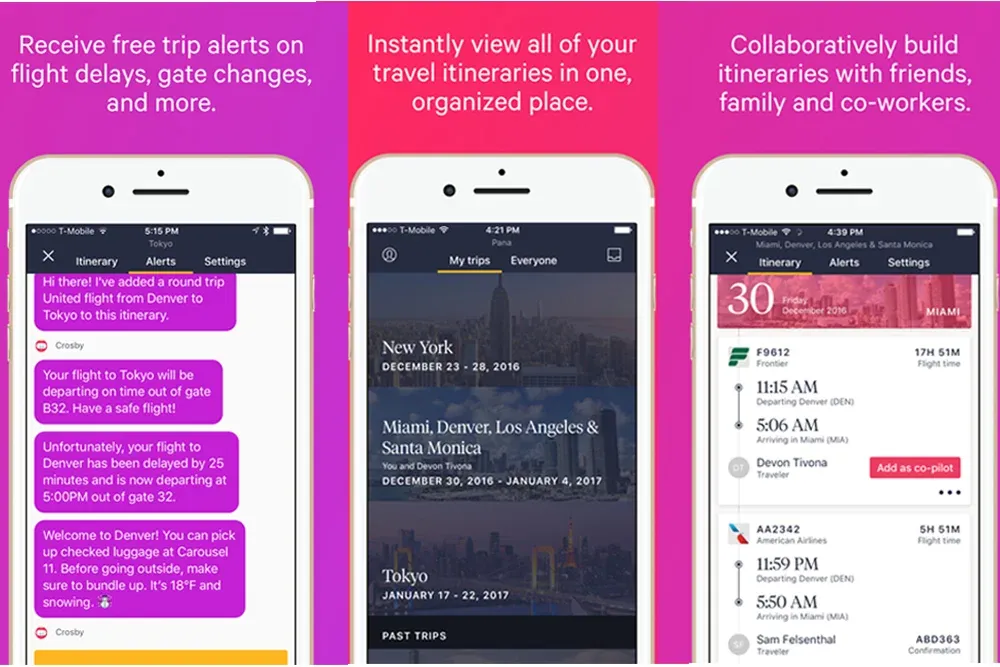
Pana also offers real-time assistance, including flight alerts and travel updates, ensuring that you're always informed and connected.
Routeperfect
Routeperfect is an AI-powered route planning tool that helps you create the perfect itinerary for your trip. By considering your preferences, interests, and available time, Routeperfect uses machine learning to suggest the best travel routes and attractions to visit.
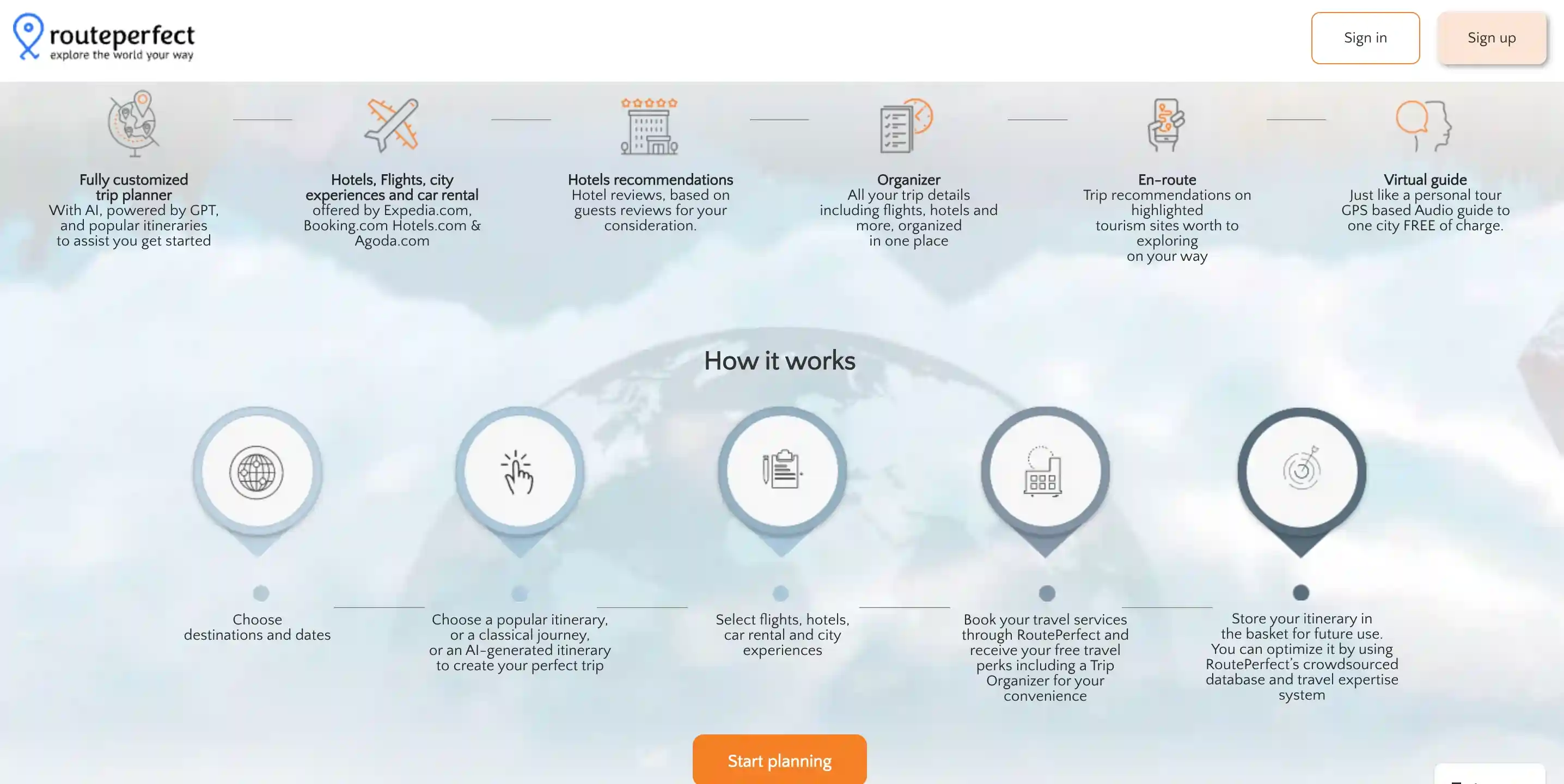
It takes into account factors such as distance, travel time, and popularity, ensuring that your journey is optimized and tailored to your preferences.
Instalocate
Instalocate is an AI-powered flight tracker that keeps you updated with real-time flight information. It uses advanced algorithms to track your flights and provide notifications about delays, cancellations, or gate changes.
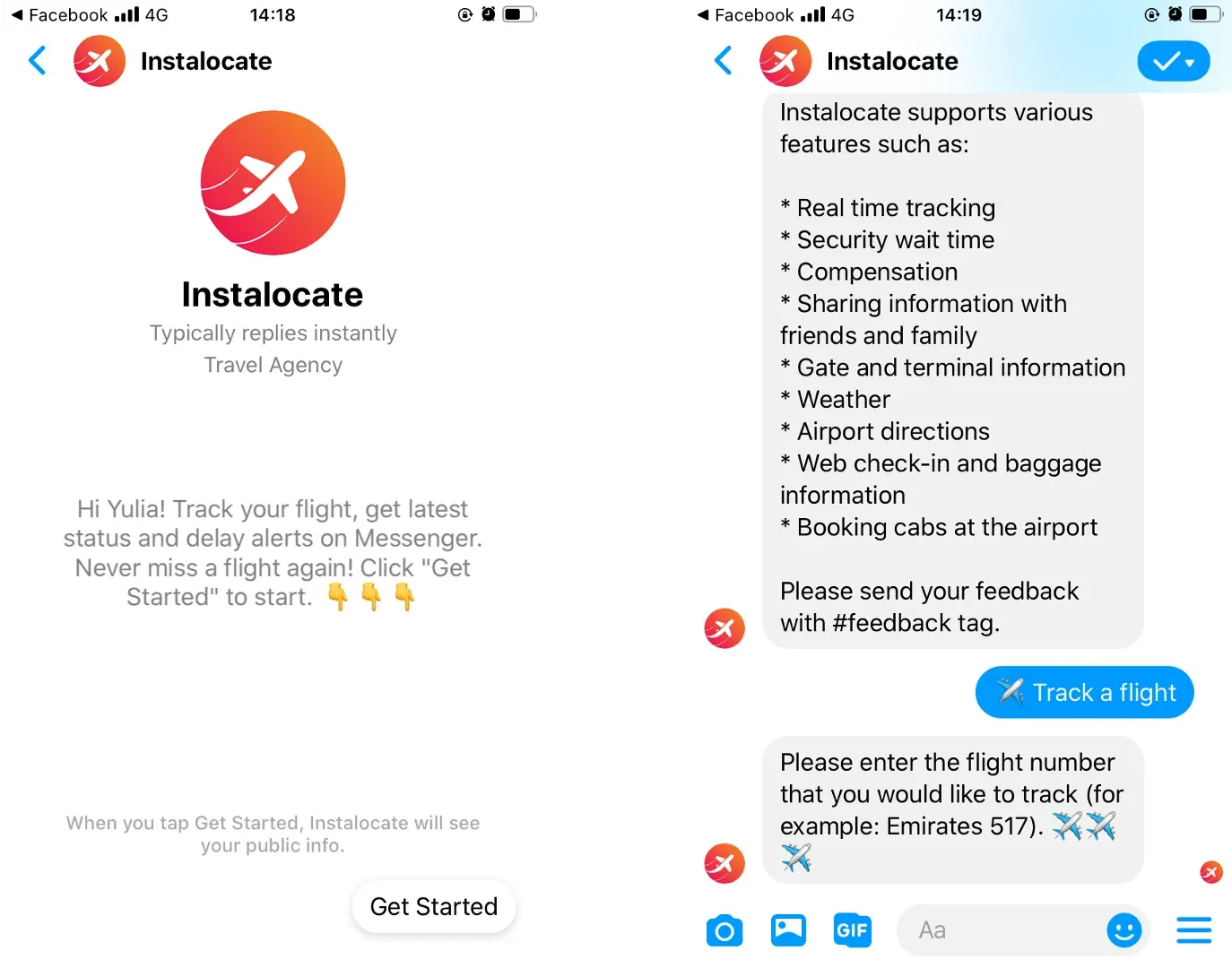
Instalocate also offers assistance with flight refunds and rebooking, helping you navigate any unexpected situations that may arise during your travel.
These AI-powered travel assistants bring a new level of convenience, personalization, and efficiency to your travel planning journey.
With their advanced technology and capabilities, they aim to streamline the process and enhance your overall travel experience.
So, whether you need help with finding the best deals, managing your bookings, or staying updated with flight information, these travel assistants have got your back!
How Can AI Be Used in Travel Planning?
Chatbots are particularly useful in streamlining and simplifying aspects of travel planning, such as the following:
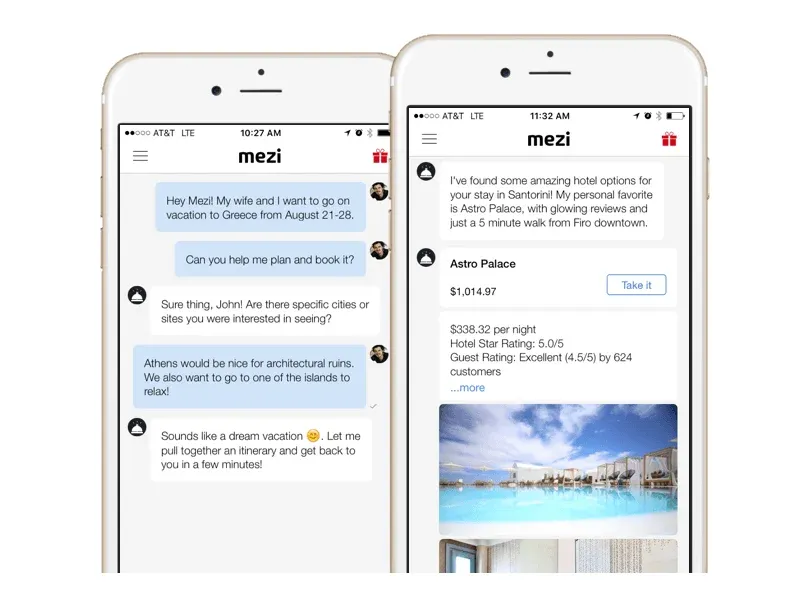
Application of AI in Flight Booking
AI can be used to analyze historical flight data and current market trends to predict and optimize flight prices, ensuring travelers get the best deals.
For example, Hopper uses AI algorithms to track flight prices and provides predictions on price changes, helping travelers make informed booking decisions.
AI Assistance in Hotel Reservations
AI-powered chatbots or virtual assistants can help travelers find and book hotels based on their preferences. These assistants can provide personalized recommendations and even assist with room upgrades or special requests.
For instance, the AI-powered assistant BotPenguin offers hotel booking functionalities, helping users find the ideal accommodations.
Itinerary Planning with AI Recommendations
AI can suggest personalized itineraries based on user preferences and interests. Routeplanning tools like Routeperfect use AI to create optimized travel routes with recommendations for attractions and activities.
Real-time Language Translation Using AI
AI-powered language translation tools can help travelers overcome language barriers. These tools use AI algorithms to provide real-time translation of text or spoken language.
For example, Google Translate uses AI to provide instant translations in various languages, making it easier for travelers to communicate in foreign countries.
AI-based Prediction of Flight Prices
AI algorithms can analyze historical flight data to predict future price fluctuations, helping travelers determine the best time to book flights. Tools like Hopper and Skyscanner provide price predictions and alerts, enabling travelers to find the most cost-effective options.
Personalized Travel Recommendations Through AI
AI understands user preferences and offers tailored travel recommendations.
For instance, BotPenguin's AI-powered travel assistant uses natural language processing and machine learning to provide personalized recommendations for flights, accommodations, and local attractions.
Enhancing Customer Service with AI Chatbots
AI-powered chatbots can provide 24/7 customer support, addressing queries, and providing assistance instantly.
Chatbots like BotPenguin are trained to understand and respond to user inquiries, offering efficient and personalized customer service.
For instance, travel companies often utilize AI chatbots to handle customer queries related to bookings, cancellations, or travel updates.
Curated Travel Packages with AI
AI can analyze various travel data sources to curate customized travel packages. These packages can combine flights, accommodations, and activities to offer travelers a comprehensive and tailored experience.
Companies like Travel AI offer AI-curated travel packages based on user preferences.
AI for Travel Safety Updates
AI can monitor and analyze real-time data sources, such as weather reports, travel advisories, and news updates, to provide travelers with safety-related information.
This helps travelers stay informed about any potential risks or disruptions during their journey.
Virtual Tours Powered by AI
AI can be used to create immersive and interactive virtual tours, allowing travelers to explore destinations remotely.
These virtual tours utilize AI technologies, such as computer vision and natural language processing, to provide a realistic and engaging experience.
Choosing the Best AI Chatbot For Travel Planning
Here are the pointers explaining how to choose the best AI chatbot for travel planning, including BotPenguin:
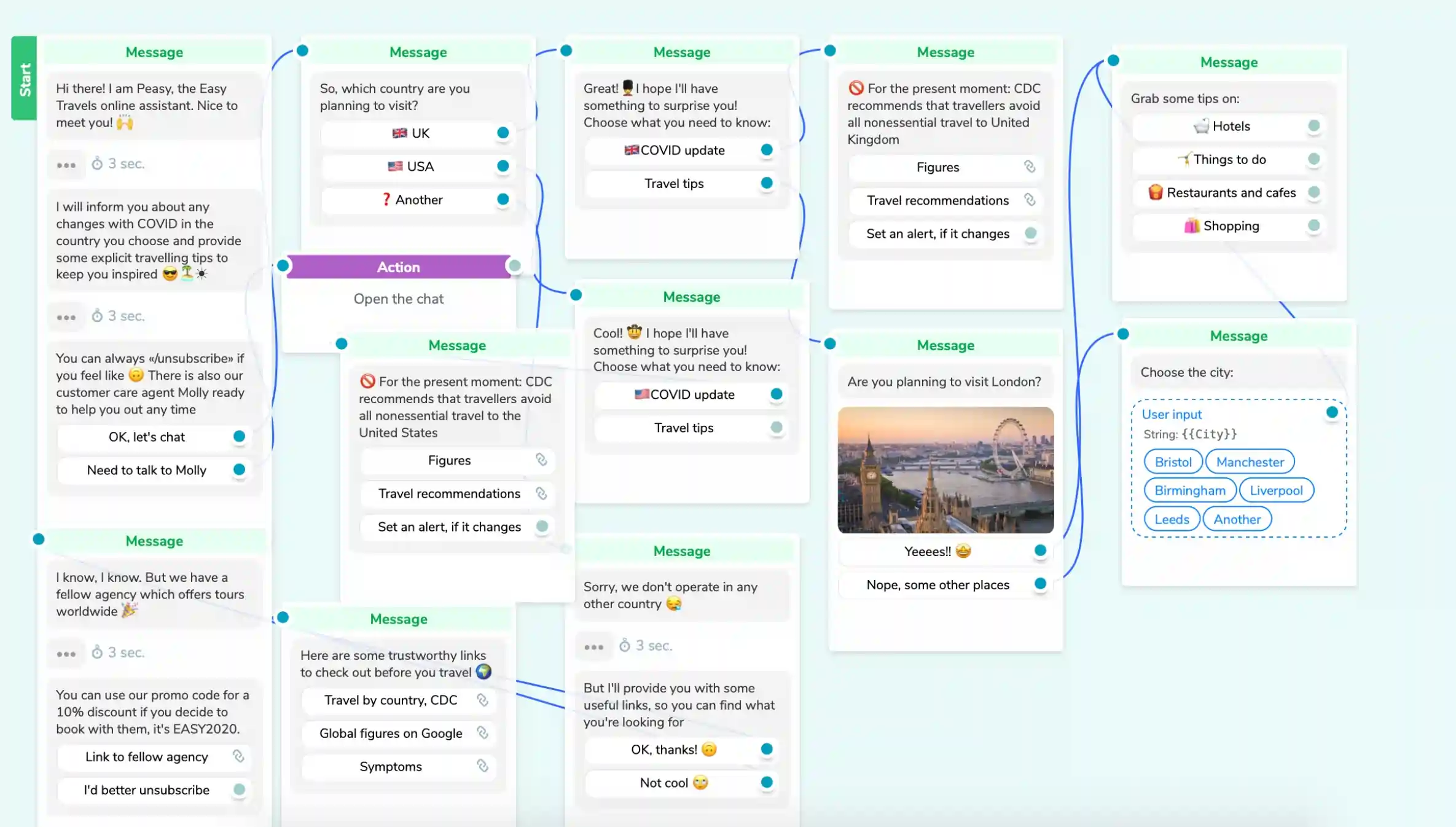
Features and Functionality
Look for a chatbot that offers a comprehensive set of features for travel planning, such as flight booking, hotel reservations, itinerary planning, and personalized recommendations.
Consider the chatbot's ability to handle different languages and provide real-time translation for seamless communication.
Evaluate if the chatbot can assist with customer service, offer safety updates, and curate travel packages.
User Experience
Evaluate the chatbot's user interface and ease of use. A user-friendly chatbot with a intuitive interface will ensure a smooth and efficient travel planning experience.
Consider if the chatbot allows for natural language interactions, providing a more conversational and personalized experience.
Integration Options
Check if the chatbot can integrate with popular messaging platforms like Facebook Messenger, WhatsApp, or website widgets, ensuring accessibility across different channels.
Evaluate the chatbot's ability to integrate with other travel platforms or APIs, allowing seamless access to flight and hotel booking options.
Customization and Personalization
Look for a chatbot that can be customized to reflect your brand and offer a personalized experience for users.
Consider if the chatbot can understand user preferences and provide tailored recommendations based on individual travel interests.
AI Capabilities
Assess the chatbot's AI capabilities, such as natural language processing and machine learning, which enable more accurate and intelligent responses.
Consider if the chatbot utilizes AI algorithms to continuously learn and improve its recommendations and interactions.
Customer Support and Assistance
Evaluate the level and quality of customer support provided by the chatbot's team. It's important to have prompt assistance and reliable support when needed.
Check if the chatbot offers 24/7 customer service to ensure assistance at any time during the travel planning process.
When considering the above factors, BotPenguin is a great option for travel planning as it offers features like flight booking assistance, hotel reservations, personalized recommendations, and integration with popular messaging platforms. Its AI capabilities allow for natural language interactions, creating a user-friendly experience.
BotPenguin also provides customization options and has a dedicated team for customer support, making it a valuable AI chatbot for travel planning.
How AI is Changing the World of Travel
As travel rebounds, customer expectations rise while manned support bandwidth strains. AI-powered chatbots present the optimal scalable solution for managing high-frequency travel queries. Seamless NLP understands multifaceted passenger requests and complex reservations flows to resolve needs instantly 24/7.
With chatbots handling nearly 70% of routine travel questions, human agents focus on high-value complex issues and relationship building (Salesforce, 2022). This hybrid model balances automation efficiency with human touches where they matter most.
And with projected cost savings from intelligent virtual agents reaching $1.5 billion for the travel sector by 2030, first-mover advantages abound (Juniper Research, 2021).
Purpose-built for scale and optimized for industry needs out the box, BotPenguin hits the ground running for maximum customer experience and cost efficiency gains from day one.
As travelers increasingly prefer self-service options, integrating smart chatbots promises operational resilience and memorable experiences fit for the future.
A key advantage BotPenguin offers is seamless out-of-the-box integrations with popular scheduling platforms like SimplyBook, Calendly, and Google Calendar, enabling smooth self-booking workflows.
With BotPenguin's travel industry templates, AI conversational interface, and direct connections to booking systems, travel companies can conveniently automate reservation handling across messaging channels.
This empowers efficient, personalized trip planning and support at all hours that today’s digitally-savvy travelers demand.
The integration capabilities make it easy for travel businesses to quickly deploy BotPenguin’s bots to maximize convenience for customers while optimizing back-end organization through automation.
This future-proofs operations for the evolving digital landscape in travel.
Suggested Reading:
Frequently Asked Questions (FAQs)
Give an example of a tourism chatbot.
One example of a tourism chatbot is BotPenguin, an AI-powered chatbot that provides personalized travel recommendations, assists with bookings and offers customer support in the travel planning process.
How to build a travel bot?
To build a travel bot, you can use platforms like BotPenguin that offer intuitive interfaces and customizable features.
These platforms often provide templates, drag-and-drop builders, and integration options to create a chatbot tailored to your travel business needs.
What does a virtual travel agent do?
A virtual travel agent, such as BotPenguin, leverages AI technology to assist travelers in planning their trips.
They offer personalized recommendations for flights, accommodations, and attractions, answer queries, handle bookings, and provide support, acting as a virtual assistant throughout the travel planning process.
How do you plan a trip with AI?
To plan a trip with AI, you can leverage AI-powered tools like BotPenguin that offer personalized travel recommendations, assist in booking flights and accommodations, optimize itineraries, and provide real-time updates.
Simply interact with the AI chatbot to get assistance in planning your trip based on your preferences and interests.


